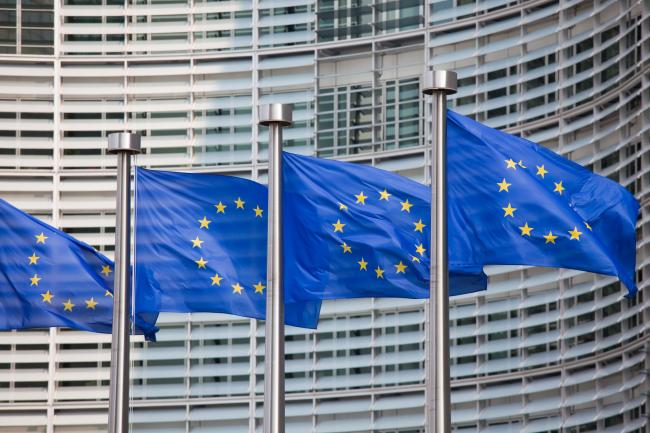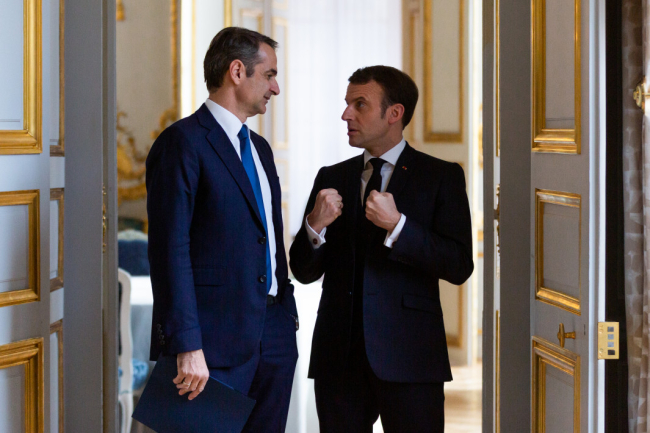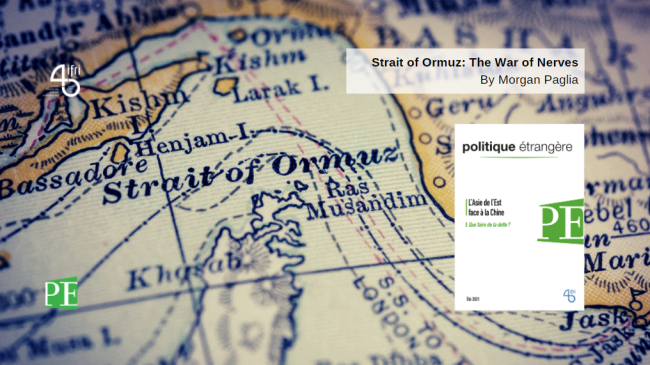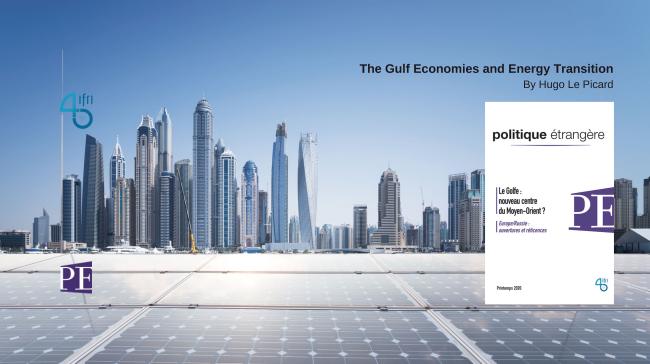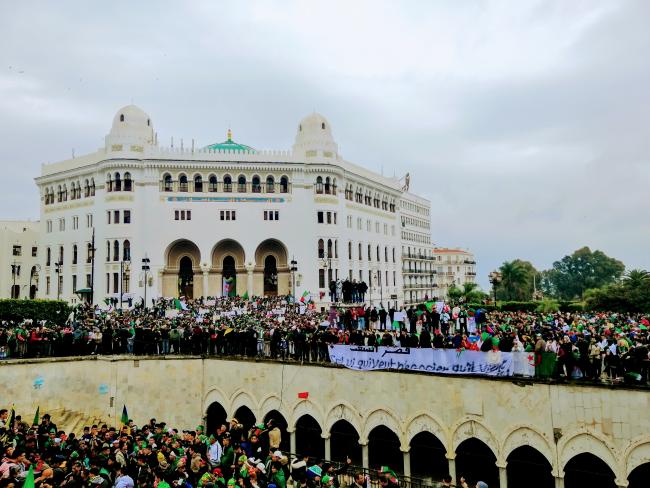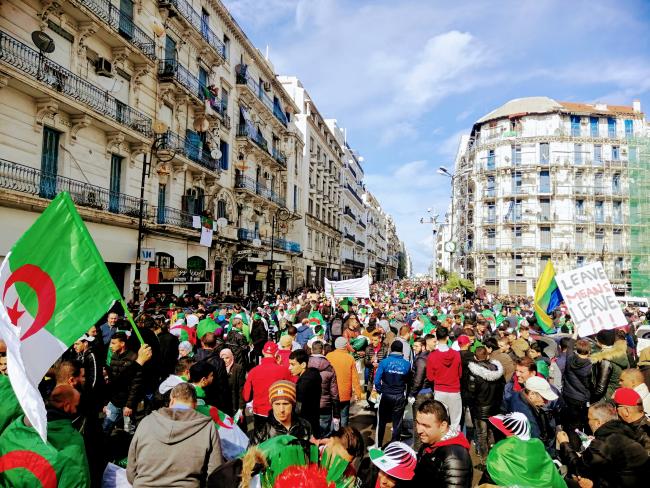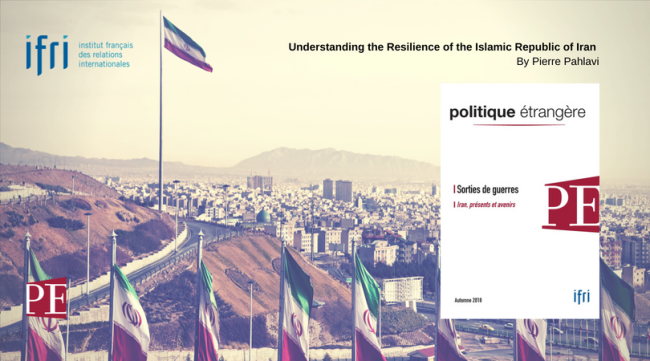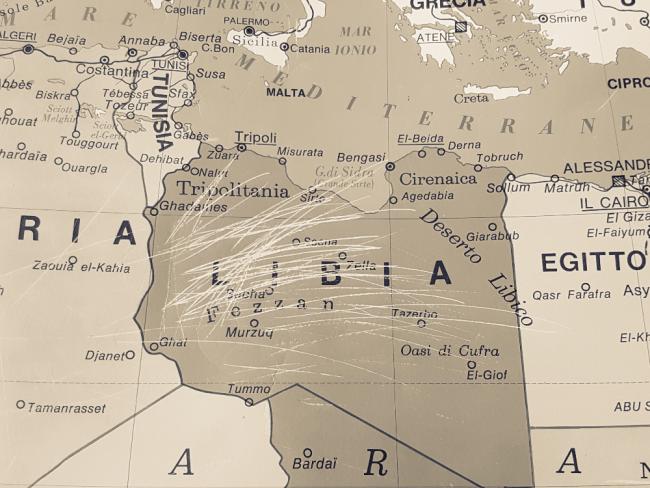North Africa and Middle East
Analysis of changing dynamics in the North Africa/Middle East region, against a backdrop of increasing security crises and their political, economic and energy consequences.
Related Subjects

What Role Should Southern Europe Play After the Pandemic and the War in Ukraine? Towards a Shared Agenda for EU Reform
Relations between southern European member states have often been marked by a loose cooperation or, worse, by logics of competition. Precisely when regional groupings within the European Union are increasingly shaping the agenda, these dynamics have hindered the capacity of France, Greece, Italy, Portugal, and Spain to pursue shared interests and objectives, while acting as a force for good for the European integration project. Recent events such as the post-pandemic recovery or the war in Ukraine show that, when cooperation occurs, positive results can be achieved.
The French-Greek Partnership: Beyond the Eastern Mediterranean
The bilateral defense agreement signed by France and Greece in September 2021 confirms the strategic turn of the relationship between the two countries. It was already unveiled in 2020 when Paris supported Athens to counter Turkish maritime operations that France and Greece considered very hostile.
Qatar and the US-China Rivalry: The Dilemmas of a Gulf Monarchy
Like its neighbors in the Arabian Peninsula, Qatar finds itself increasingly confronted with a difficult dilemma: while its economy is looking to the East, more specifically towards China, the security and stability of the country still depend on the United States.
The United Arab Emirates in Africa: The Partly Thwarted Ambitions of a New Regional Player
The United Arab Emirates (UAE) has long-standing ties with African countries, but the implementation of a genuine Africa policy dates back only about 15 years.
Strait of Hormuz: The War of Nerves
In the event of a major conflict, Iran could decide to close the Strait of Hormuz, which would cause a global energy crisis.
Is Escalation Between France and Turkey in the Middle East and Beyond Inescapable?
In recent years, France and Turkey have been on opposing sides relating to Middle East concerns.
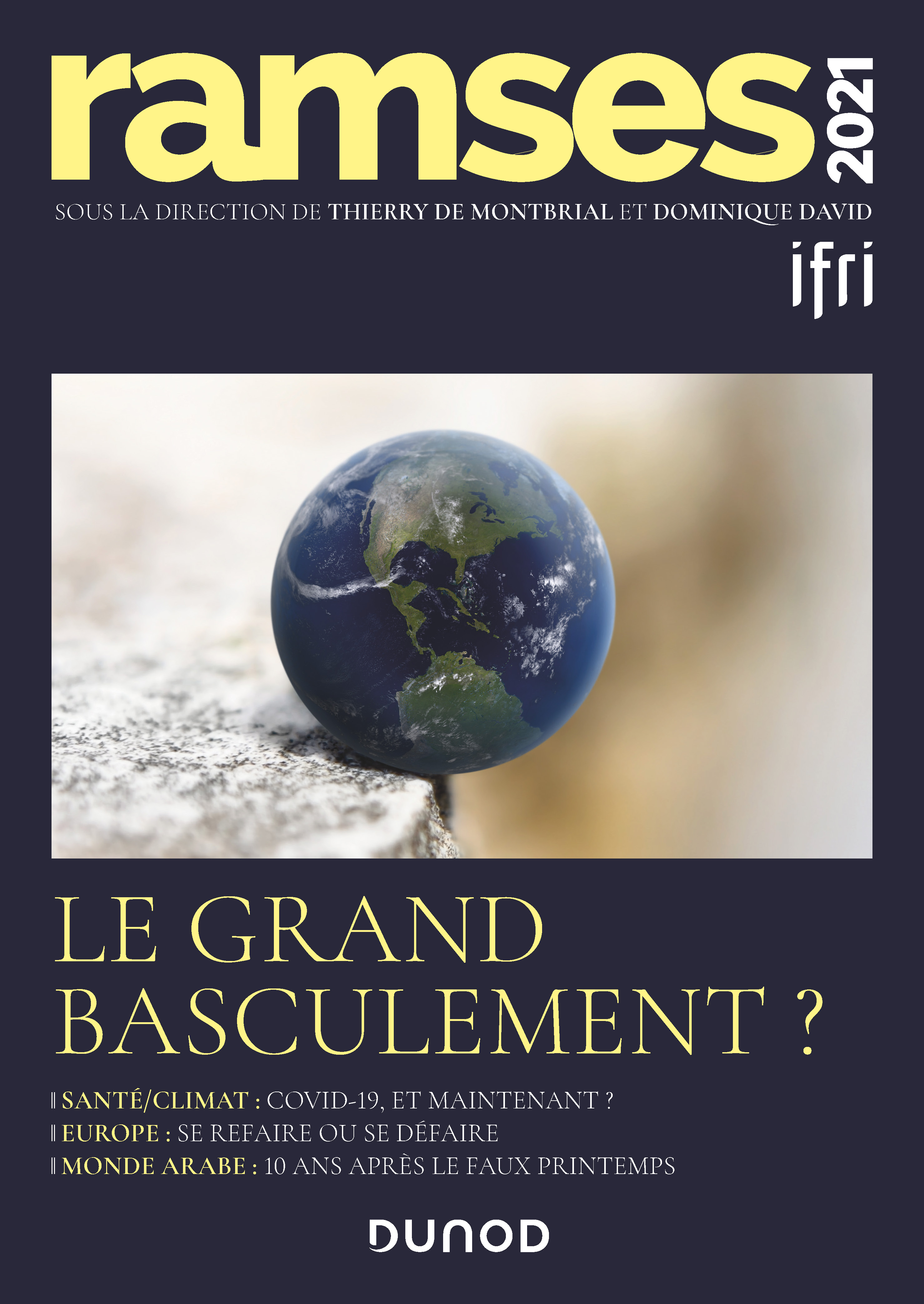
RAMSES 2021. At the Edge?
RAMSES 2021. At the Edge?, written by Ifri's research team and external experts, offers an in-depth and up-to-date analysis of geopolitics in today’s world.
The Middle East: The Economy in The Race for Power
Middle Eastern geopolitics is currently undergoing structural changes: the regional order is in transition in the aftermath of the Arab Spring that undermined authoritarian governance, and triggered the competition for power against a backdrop of American withdrawal.
The Gulf Economies and Energy Transition
The economies of the Persian Gulf are highly dependent on their petrol exports, particularly to Asia.
The Gulf: from Geopolitics to Plain Politics
The geopolitical shadow of the Gulf now extends far beyond the Middle East as a function the external dealings of Iran and the countries of the Arabian Peninsula.

The Future of Europe in the Context of Sino-American Competition
This special issue of Politique étrangère focuses on the proceedings of the Conference organized by the French Institute of International Relations (Ifri) for its 40th anniversary, held on April 10th, 2019, in Sorbonne University's Grand Amphithéâtre.
What Can Europe Hope to Achieve in Tomorrow's World?
In this special issue of Politique étrangère devoted to the proceedings of the conference organized by Ifri on April 10, 2019, at the Grand Amphitheater of the Sorbonne, on the occasion of its fortieth anniversary, discover the debate moderated by Christine Ockrent between Franziska Brantner, Jean-Louis Boulanges, Bernardino Leon, and Igor Yurgens.
The Shifting Foundations of Political Islam in Algeria
Understanding Algeria’s various Islamist communities—including militant groups, moderate factions, and grassroots movements—offers a window into the country’s uncertain sociopolitical future.
A Protest Made in Algeria
Since February 22, thousands and then millions of Algerians have taken to the streets every Friday to protest against the fifth term of their ailing eighty-two-year-old president, Abdelaziz Bouteflika.
Understanding the Resilience of the Islamic Republic of Iran
The leaders of Iran nurture regional ambitions, and are conscious of the limits of their country’s power.
The Gulf Monarchies' Armed Forces at the Crossroads
Something is happening with the military forces of the Arab monarchies in the Gulf.
"Playing with Molecules": The Italian Approach to Libya
This paper aims to analyse the many ways in which Italy is trying to play with the many Libyan “molecules”, the different parties of a fragmented and collapsing country, and the possible implications of the strategy adopted by the Gentiloni government and its Minister of Interior, Marco Minniti, towards the country and the migratory crisis.

Middle East, the new "Great Game"
Will a divided Middle East become the center of a new “Great Game”? The world’s global powers are aligned in it: the United States, falsely tempted by retraction; Russia, establishing its position in an unexpected state of play, France, destabilized by the contradictions of its own policy… In addition are tussles for regional hegemony between Iran, Turkey, and Saudi Arabia.

Activists Without Borders
Various associations organise trips to Israel and/or to the Palestinian Territories. Someone who has no previous knowledge of the Near East and who takes part in a journey organised by a pro-Israeli group, would return to France with a very different vision of the Israeli-Palestinian conflict to that of someone who had travelled with a pro-Palestinian group.
For more information concerning the complete work, please click on this link.

Israel and Hezbollah: The New Strategic Equation
After the war between Israel and Hezbollah during the summer of 2006, a deterrence strategy was established between the two parties. Occasional subsequent crises have thereby been contained and have been prevented from escalating into extensive confrontations.
Support independent French research
Ifri, a foundation recognized as being of public utility, relies largely on private donors – companies and individuals – to guarantee its sustainability and intellectual independence. Through their funding, donors help maintain the Institute's position among the world's leading think tanks. By benefiting from an internationally recognized network and expertise, donors refine their understanding of geopolitical risk and its consequences on global politics and the economy. In 2025, Ifri supports more than 80 French and foreign companies and organizations.








